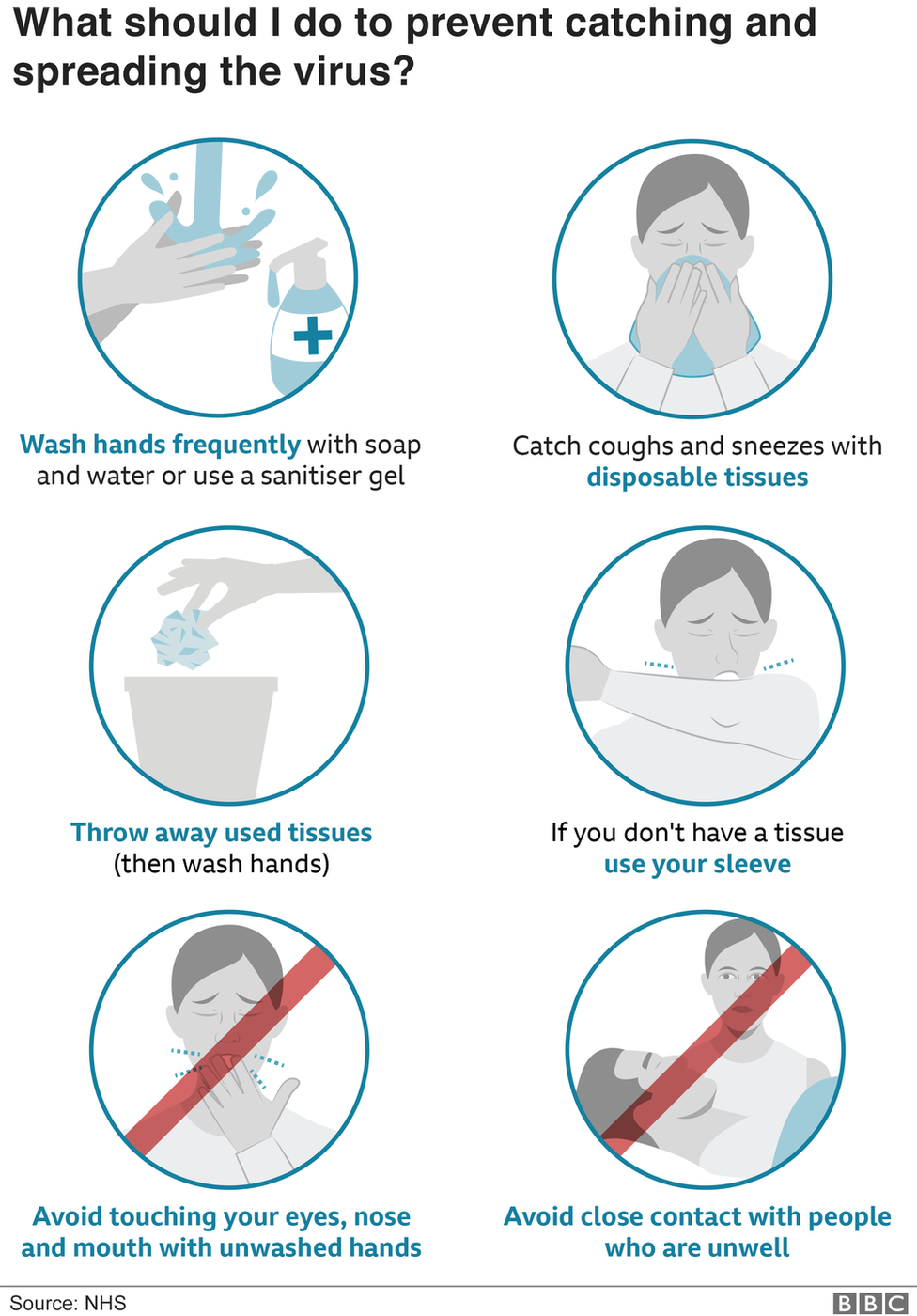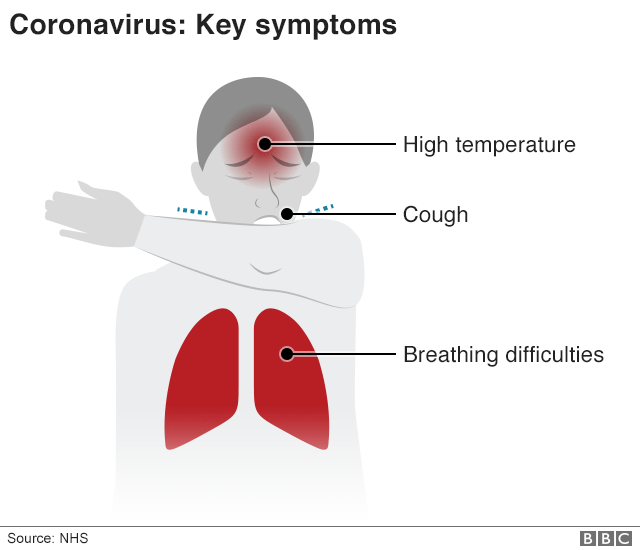By BBC News
Coronavirus has spread to 177 countries or territories, including the UK, and claimed more than 34,000 lives.
So, what is the disease, how does it spread and when are people most infectious?
How do I protect myself?
The best thing is regular and thorough hand washing, preferably with soap and water.
Coronavirus spreads when an infected person coughs small droplets - packed with the virus - into the air. These can be breathed in, or cause an infection if you touch a surface they have landed on, then your eyes, nose or mouth.
So, coughing and sneezing into tissues, not touching your face with unwashed hands, and avoiding close contact with infected people are important for limiting the spread.
Face masks do not provide effective protection, according to medical experts.



What are the coronavirus symptoms?
Coronavirus infects the lungs. The symptoms start with a fever followed by a dry cough, which can lead to breathing problems.
This is a new, continuous cough and means coughing a lot for more than an hour, or having three or more coughing episodes in 24 hours (if you usually have a cough, it may be worse than usual).
It takes five days on average to start showing the symptoms, scientists have said, but some people will get symptoms much later than this. In fact the World Health Organization (WHO) says the incubation period lasts up to 14 days.
Ear, nose and throat specialists in the UK have also noticed rising reports of anosmia - the term for loss of smell.
And increasing numbers of people on social media have been reporting a lost sense of smell and taste. Some have tested positive for coronavirus.
However, the evidence so far is only anecdotal and viruses behind the common cold often lead to lost senses of smell and/or taste.


People will be most infectious when they have symptoms, but there have been suggestions some can spread the virus even before they are sick.
The early symptoms can easily be confused with other winter bugs including colds and flu.
Tags
News

